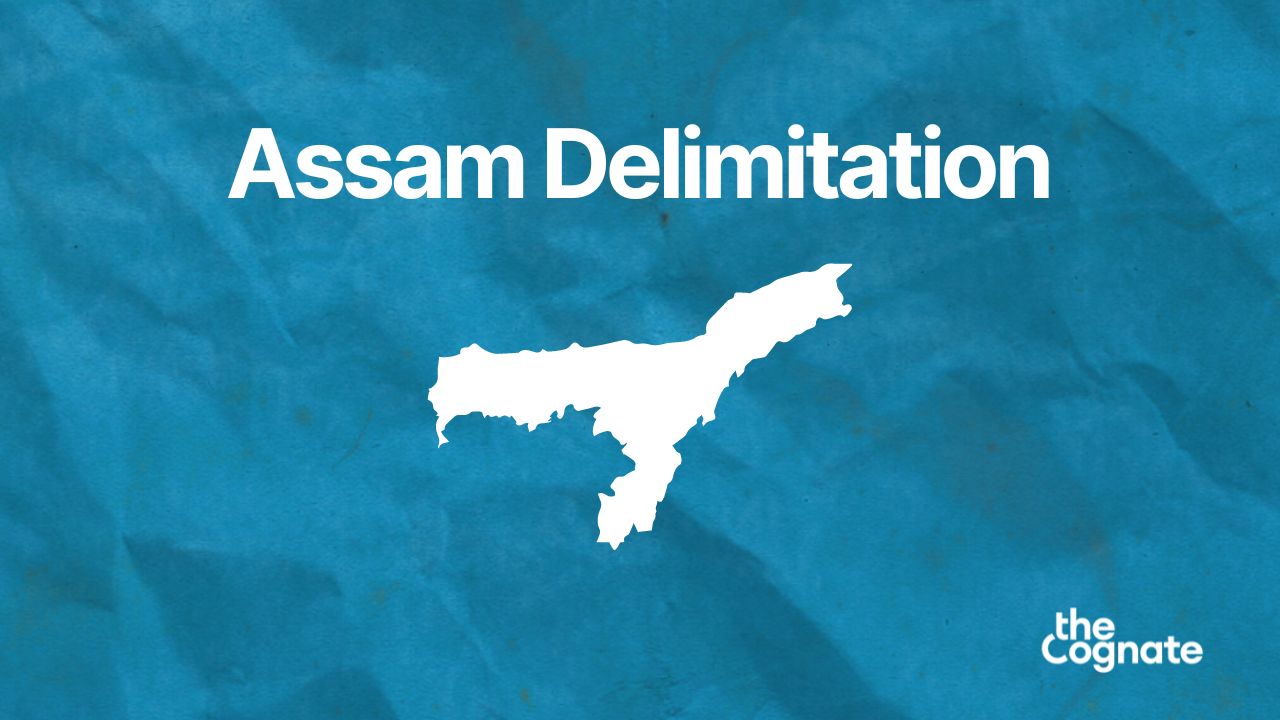The Election Commission’s recently released draft delimitation proposal to redraw assembly and parliamentary constituencies in Assam has faced strong criticism from opposition leaders and political scholars who claim that it caters to the ruling Bharatiya Janata Party’s (BJP) majoritarian agenda. The opposition’s main contention revolves around the abolition of several Muslim-majority assembly seats, many of which are currently represented by legislators from opposition parties belonging to the Bengali-origin Muslim community.
The draft proposal suggests merging or subsuming the Muslim-majority seats under newly-created constituencies, many of which have significant Hindu populations, The Hindu reported. Furthermore, three assembly constituencies where Muslims play a decisive role have been reserved for candidates belonging to Scheduled Castes and Tribes, effectively excluding minority leaders from contesting. According to political scientist Apurba Kumar Baruah, the proposal seems to be an attempt by the government to reduce the number of Muslim legislators.
Delimitation is the process of redrawing electoral boundaries to ensure fair representation based on changes in population. Assam’s delimitation process was deferred in 2008 due to security concerns but was revived in 2020 following a notification from the Law Ministry. The process, based on the 2001 Census figures, aims to provide equal representation and prevent any political party from gaining an unfair advantage.
The BJP Agenda
Controversy has erupted as various political parties and groups claim that the draft proposal is biased and favours the BJP’s agenda. Representatives of the Bengali-origin Muslim community argue that the proposal politically disadvantages them by merging minority areas with majority Hindu populations and eliminating seats with significant Muslim populations, particularly in districts like Barpeta and Barak Valley.
The reduction of constituencies from eight to six in Barpeta district, with one reserved for Scheduled Caste candidates, limits the election of Muslim legislators to only three seats, as highlighted by a Bengali Muslim legislator. Concerns have also been raised regarding the suggested removal of assembly seats in Karimganj and Hailakandi districts that are dependent on Muslim votes. Changes in reservation status, boundary realignment, and name alterations may affect several sitting legislators and parliamentarians, potentially impacting their electoral prospects.
The draft delimitation proposal for Assam increases the number of seats reserved for Scheduled Tribes to 19 from 16 and for Scheduled Castes to nine from eight while maintaining the total number of Assembly constituencies at 126 and Lok Sabha constituencies at 14. The All India United Democratic Front (AIUDF) claims that the draft proposal limits the number of Muslim-majority Assembly constituencies from 29 to 22. The use of 2001 Census data instead of the 2011 Census is also a point of concern, as any increase in minority population in reserved constituencies would not be taken into account.
Critics argue that the delimitation exercise in Assam appears to have been orchestrated to scatter or ghettoize the Muslim vote. The BJP’s promise of a delimitation exercise in its manifesto during the 2021 assembly elections, aimed at protecting the political rights of “indigenous” communities, has added to the controversy. Assam Chief Minister Himanta Biswa Sarma hailed the draft proposal, stating that if implemented, it would politically save the state. BJP MP Pabitra Margherita described the proposal as a “protective shield for the Assamese community,” emphasizing the dominance of Indian and indigenous origin people in the assembly seats.
The Congress party, which boycotted the deliberations, expressed its dissatisfaction with the proposed draft, comparing it to the arbitrary nature of the Radcliffe Line drawn during the partition of the country. Congress leader Prodyut Bordoloi criticized the lack of territorial contiguity in the proposed draft of redrawing the boundaries of assembly constituencies, likening it to the arbitrary nature of the Radcliffe Line. The Radcliffe Line refers to the boundary demarcation between India and Pakistan during the country’s independence, named after British lawyer Sir Cyril Radcliffe, who had never visited India but was tasked with drawing the line.
The Election Commission of India consulted 11 political parties and 71 civil society organizations, including the BJP, during the formulation of the draft proposal, which was released on June 20. However, the Congress party chose to boycott the deliberations.
Opposition leaders and political scholars argue that the draft delimitation proposal in Assam, with its alleged bias towards the ruling BJP’s majoritarian agenda, raises concerns about fair representation and the protection of minority rights. The controversy surrounding the proposed changes to constituencies, particularly those affecting Muslim-majority areas, highlights the ongoing tensions and political sensitivities in the region.
As the draft proposal undergoes further scrutiny and deliberation, it remains to be seen how the Election Commission will address the concerns raised by the opposition and whether any modifications will be made to ensure a more inclusive and balanced representation in Assam’s electoral system.
Related











































